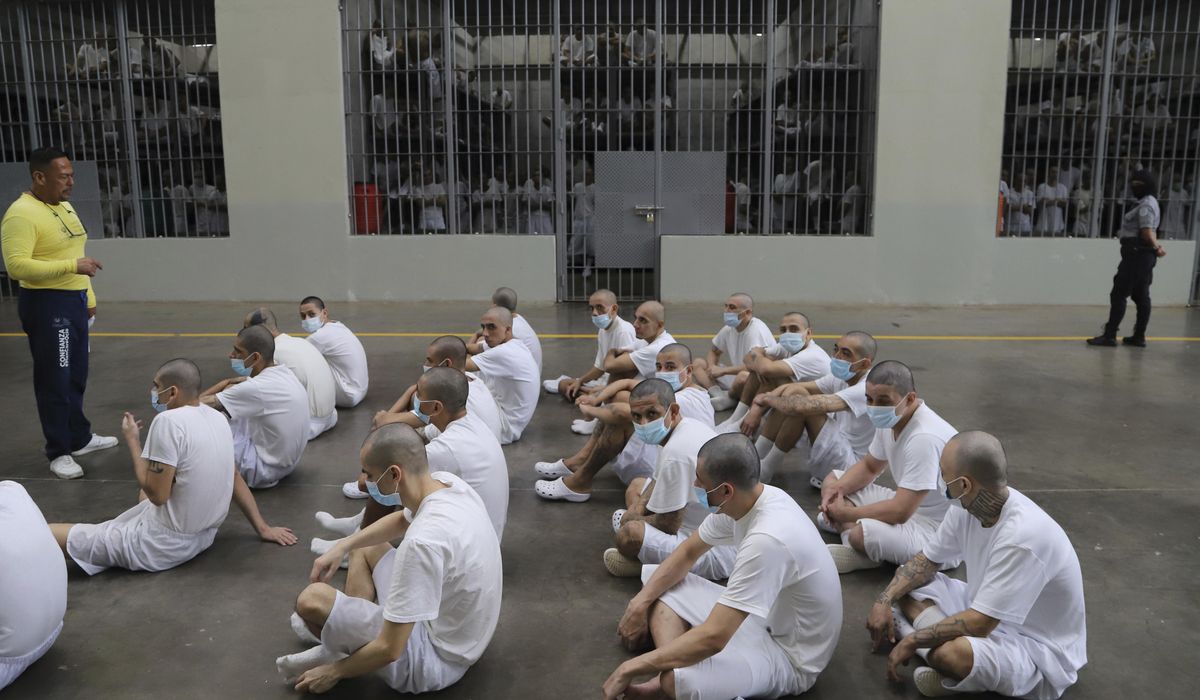


A federal judge on Wednesday ruled that the government violated the “due process” rights of illegal immigrants when it speedily ousted them to El Salvador’s terrorist prison, and he ordered the government to belatedly allow them to challenge those already carried out deportations.
The ruling came from Judge James A. Boasberg, who has emerged as a major foil for President Trump as he seeks to use the Alien Enemies Act, a 1798 law, to speed up deportations.
Judge Boasberg said the government owed the hundreds of Venezuelans deported on March 15 more time and a legal chance to challenge their removal under the law.
And he said even though they are gone, the government must somehow find a way to offer them that chance.
“Plaintiffs’ ability to bring habeas challenges to their removal must be restored,” he wrote. “Defendants must facilitate plaintiffs’ ability to proceed through habeas and ensure that their cases are handled as they would have been if the government had not provided constitutionally inadequate process.”
“Absent this relief, the government could snatch anyone off the street, turn him over to a foreign country, and then effectively foreclose any corrective course of action,” he said.
The judge said he would not yet order an exact process, saying he would leave it to the government to offer a solution that gives the migrants full due process.
That suggests they could be given it in El Salvador — though Judge Boasberg pointed out that several other judges have ordered the government to bring back deported illegal immigrants to give them a chance to challenge their deportations here.
Judge Boasberg also certified a class action for the Venezuelans who were deported as suspected members of Tren de Aragua.
The ruling, which is likely to draw another Trump appeal, is the latest in a string of legal challenges that have gone against the president and his attempt to speed deportations.
Mr. Trump is the first president to use the AEA against citizens of a nation that has not been at war with the U.S.
He argues TdA, which the government has designated a terrorist organization, is operating at the behest of the Venezuelan government and so is subject to the AEA.
Judge Boasberg said Mr. Trump’s suspicions about the deportees aren’t good enough. They must have a chance to argue that they are not part of TdA.
“The government’s mere promise that there has been no mistake does not suffice,” he said.
The Washington Times has sought comment from Homeland Security and the Justice Department for this story.
The Venezuelan migrants were sent to El Salvador’s terrorism prison, CECOT. The U.S. is paying for them to be held there, after Venezuela refused to take them back.
In cases where a foreign government refuses its citizens, the law allows the administration to seek a so-called “third country” to take them back.
But judges have ruled the administration must give them a chance to challenge that deportation in a regular federal court.
Trump officials argue the migrants already had their due process through the immigration courts.
The administration is already under order from another federal judge to offer similar due process to a half-dozen illegal immigrants the U.S. tried to deport to South Sudan last month.
They are being held at a U.S. military base in Djibouti while Homeland Security tries to create the conditions for them to have immigration court hearings.
• Stephen Dinan can be reached at sdinan@washingtontimes.com.
